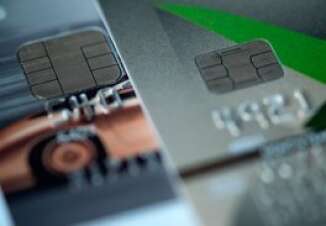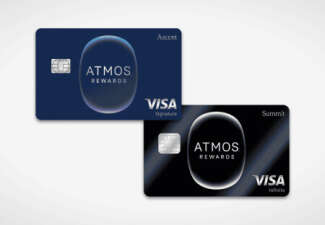The content on this page is accurate as of the posting date; however, some of the offers mentioned may have expired.

While consumers are not feeling particularly satisfied with their finances, they are happy with the EMV outfitted cards issuers have rolled out over the past three years, according to a new study by Fiserv, Inc., a provider of financial services technology solutions. They found that for 36 percent of people, sliding their EMV based credit card into the terminal is their preferred way to pay, trumping swiping (30 percent), cash (17 percent) and check (8 percent).
When compared with studies in other years, chip-based cards have made noteworthy strides when it comes to payment preferences, up 9 percent. What about convenience? Here too, these credit cards are doing well, up 12 percent. And when it comes to speed, they are up 9 percent.
Transaction alerts also did well with consumers, with just about two out of three opting to get them for their credit and debit cards. Why? That was an easy question to answer, with 67 percent saying they gave them a sense of security, while 43 percent had dealt with fraud in the past. And they were effective, with 42 percent indicating that transaction alerts helped them thwart fraudsters.
On the other hand, 33 percent found them a convenient way to keep tabs on their purchases. When it came to transaction alerts, Millennials were more willing than the other generations to take advantage of them, seeing them as a great way to manage purchases.
Financial health is worrisome
People’s satisfaction levels when it comes to their finances are on the low side according to the study, finding that just 37 percent are happy with the state of their financial health.
For a third of respondents, keeping tabs on their finances is a burden. When looking at this group, 59 percent said that they see managing their finances as being an obligation, while 47 percent say it just reminds them that they have financial issues.
One out of ten people has opted to get a cash advance or a short-term loan over the past 12 months to cover some kind of expenses. That said, 38 percent say they would either have a hard time paying off a loan of $500 or wouldn’t be able to pay it at all.
When compared with other kinds of health or wellness, financial wellness (37 percent) didn’t fare well, outperformed by the other areas, including:
- Emotional health (54 percent)
- Social life (45 percent)
- Physical health (44 percent)
Openness balances out financial issues
These trends in how people view their financial wellness are offset by people’s willingness to try new things. “Although money management remains a challenge for many households, there is an openness to new ways of doing things,” said Devin McGranahan, senior group president, Billing and Payments, Fiserv.
“While consumers already rely on mobile access and transaction alerts, financial institutions and billing organizations can create more intelligent experiences that build loyalty, instill confidence and improve financial management through enhanced bill payment reminders, real-time payments and instant fraud alerts,” he added.
This online study was carried out by the Harris Poll from August 22 through September 7, 2017. They interviewed 3,081 people living in the United States, who are 18 years of age or older.






